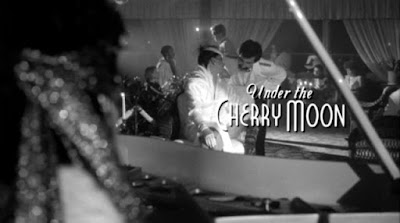Robert Altman in 1978, directing Mia Farrow and Vittorio Gassman in "A Wedding." Not good.
As a working critic, I was often in the minority on films and filmmakers, guided by a rather simple, but rigid, personal theory - namely, that there is no place for loyalty (actually, blind loyalty) in movie criticism.
I was embarrassed by a colleague who developed a crush on a movie or moviemaker early on and willfully refused to grow or move beyond that.
I was impossible.
Which brings me tone of my early heroes of the cinema - Robert Altman.
Altman was already something of a Hollywood veteran when he made his breakthrough film, "M*A*S*H" (1970), at age 45. As rebellious as the young audience to which it appealed, "M*A*S*H" restlessly defined the New Hollywood of its time, and with both that film and the one that followed, "Brewster McCloud" (1970), Altman perfected an improvistory style driven by a lot of rapid, energetic, overlapping verbal outpouring.
I was half Altman's age (part of his target audience) and I was in love.
What he created was a cinematic riff, a cool-jazz style to which he would invariably return during his up-and-down career, arguably hitting something of a peak with "Nashville" (1975), his most defining film.
"Buffalo Bill and the Indians, or Sitting Bull's History Lesson," "Quintet," "The Player," "Short Cuts," "Prêt-à-Porter," "Dr. T and the Women," "Gosford Park," "The Company" and "A Prairie Home Companion," (his final film in 2006, the year he died) carefully followed the same formula - and were all over the map in terms of hits, misses and in-betweens.
But the formula turned rancid with two titles in particular - "A Wedding" (1978) and "Health" (1980), which is alternately known as "H.E.A.L.T.H." and "HealtH." (Don't ask me why.) These two films, both made for Twentieth Century-Fox, find Altman at his most condescending and most cynical, a filmic trademark of his that was starting to wear terribly thin.
His rancor, which was so bracing in "M*A*S*H" and so trendy in "Nashville," was beginning to leave a vaguely nasty aftertaste.
And the two are also painfully unfunny, with "A Wedding" serving as a rather snide, brutal attack on the titular event - which was already something of a cliché in movies - and "Health" aiming at the facile political correctness and hypocrisies of health-food devotés - an idea that was ahead of its time and very promising. But a missed opportunity here.
Both have huge casts, the usual ragtag Altman collection of disparate actors. "A Wedding," a true narrative mess, details the coming together of two families - Eurotrash on one side (Vittorio Gassman and Nina Van Pallandt as the parents of the groom), vulgar WASPS on the other (Paul Dooley and Carol Burnett as the wannabe parents of the bride, named Snooks and Tulip, no less). Neither is spared Altman's vitriol or judgment.
Lillian Gish, Mia Farrow, Geraldine Chaplin, Howard Duff, Dina Merrill, Viveca Lindfors, Lauren Hutton and literally dozens of other familiar actors come and go and bump into each other in the film's monied setting, a sprawling Oak Park mansion. "A Wedding" is easily Altman's most (over-)populated movie, but no one here is companionable.
James Garner and Ann Ryerson trying to resuscitate Lauren Bacall (and "Health")
Case in point: The wildly annoying strolling singers in "Health" who warble inane numbers while wearing ridiculous "vegetable" costumes. (FYI: "Health" originally clocked in at 105 minutes, but for some reason, the Fox-owned print of it that would unreel with some frequency on the Fox Movie Channel runs five minutes less - 100 minutes. Curious.)
It was the release of this film when I started to seriously question my enthusiasm for Altman, a fascination that started in my youth but dwindled as both he and I aged. Towards the end, I found his films as annoying as those singers. Anyway, I realize that Hollywod rarely remakes bad films, but given how health-conscious that present-day society pretends to be, "Health" should be an exception. Time has caught up with it.
The material is definitely ripe for a revamping. Perhaps Wes Anderson or Alexander Payne could get it right. Just a suggestion.
Essential Altman: That said, there are a number of Altman films that mean the world to me, starting with "Brewster McCloud," which remains a vivid seminal movie experience from my lost youth. Following closely behind it are "California Split," Come Back to the Five & Dime, Jimmy Dean, Jimmy Dean," "Popeye," "Fool for Love," "Cookie's Fortune," "Prêt-à-Porter," "A Prairie Home Companion," "Dr. T and the Women"and the very idiosyncratic "A Perfect Couple," not the usual Altman suspects.
And, yes, "M*A*S*H" remains a revelation. As for "Nashville," it's addictively watchable, but knowing that Altman originally shot it as an eight-hour film, I'm way too aware of its many narrative gaps.




























